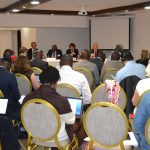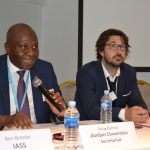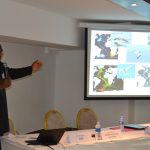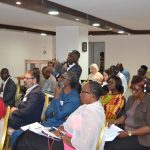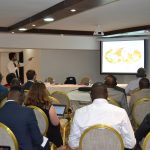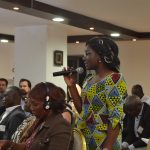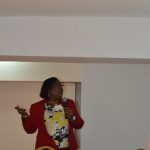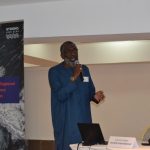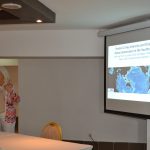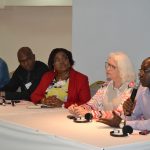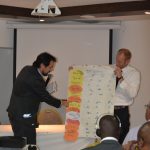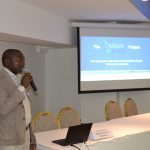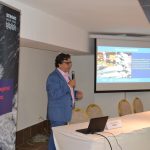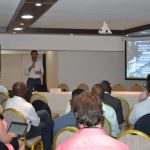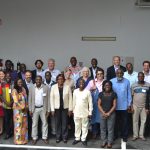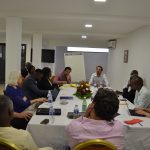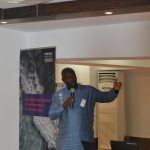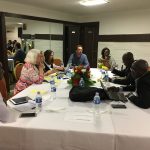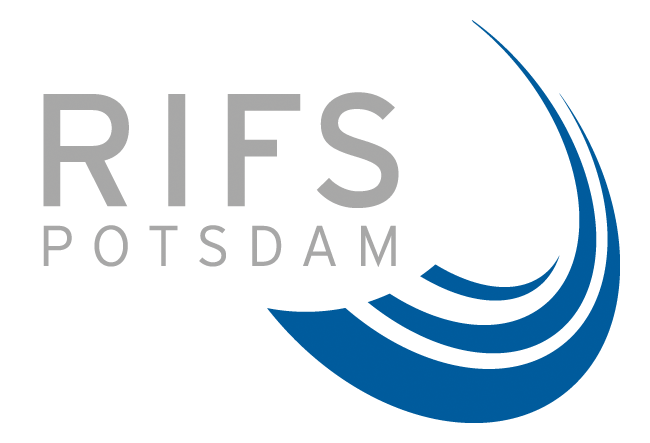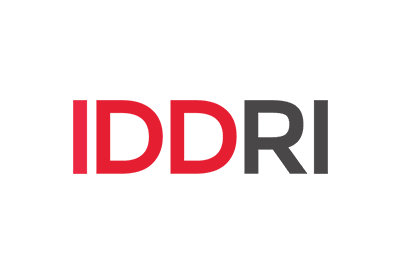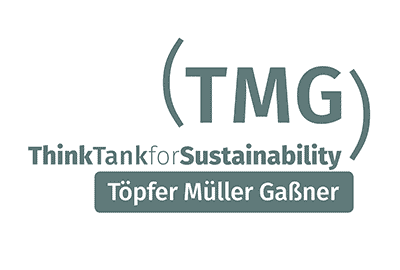Representatives from Cameroon, Côte d’Ivoire, Ghana, Namibia, Nigeria, Togo and Senegal as well as global and regional organisations, regional scientific institutions, academia and NGOs took part in a two-day workshop organised by the STRONG High Seas Project and the Secretariat of the Abidjan Convention. 37 participants attended the workshop which took place from 27-28 June in in Abidjan, Côte d’Ivoire. The workshop provided the participants with an opportunity to discuss the current status, interests and challenges for global and regional ocean governance and to foster exchange and build new networks.
The STRONG High Seas project is a five-year project that aims to strengthen regional ocean governance for the conservation and sustainable use of marine biodiversity in areas beyond national jurisdiction. Collaborating with the Secretariat of the Secretariat of the Abidjan Convention, the project aims to develop and propose targeted measures to support the coordinated development of integrated and ecosystem-based management approaches for ocean governance in the Southeast Atlantic.
Key messages from the workshop
- High seas biodiversity both globally and to the region of the Southeast Atlantic was identified as highly important for human activities, such as fisheries, as well as ecosystem services, such as climate change regulation. Other human activities taking place in the Southeast Atlantic region highlighted during the workshop include navigation and transport, underwater cables, exploitation of marine genetic resources, and deep sea mining (in the future). IUU was specified to be a critical issue within the region placing pressure on marine biodiversity
- Key pressures on the high seas in the Southeast Atlantic were identified to be pollution through materials and waste (land based), overexploitation of marine resources, destruction of marine habitats, noise pollution, contamination through fuels and ballast water disposal, ocean warming and acidification, and collisions. Workshop participants agreed that most of these pressures will likely increase in the future as activities on the high seas will expand
- A critical factor affecting the status of marine health and ultimately human wellbeing was highlighted to be the connectivity between marine areas beyond national jurisdiction (ABNJ) and coastal areas.
- Workshop participants agreed that knowledge exchange, collaboration and cooperation among different stakeholders in the region should be improved, especially in view of the UN negotiations on the conservation and sustainable use of marine biodiversity beyond national jurisdiction (BBNJ) and with regard to regional actions.
- In general, there was agreement that existing organisations should be reinforced to ensure the implementation of existing agreements and build a base for the implementation of the future international instrument. Within much of the Southeast Atlantic region, there are limited or weak national mechanisms as well as integration of sectoral ocean departments.
- Lack of awareness about issues related to ABNJ amongst decision makers and civil society was identified as a key challenge in the Southeast Atlantic region. Participants suggested that an information-sharing mechanism or tool where stakeholders can connect, share and access information could be an important mode to reach a broad audience and create awareness about the high seas within the region.
- Expanding the mandate of the Abidjan Convention to include ABNJ was discussed during the workshop. The Abidjan Convention Secretariat was identified as having a highly important convening role in the region in terms of coordinating collaboration between member States. Strengthening its links to other regional actors, such as Regional Fisheries Management Organisations (RFMOs), could also be considered by the contracting parties. An example of such collaboration can be demonstrated for instance by the Collective Arrangement in Northeast Atlantic between OSPAR and the North-East Atlantic Fisheries Commission (NEAFC).
- The launch of an ABNJ working group under the Abidjan Convention specifically tasked with covering the topic of ABNJ could help strengthen collaboration and facilitate the development of a shared vision for the region. Such an initiative should build on previous efforts and include biological as well as socioeconomic considerations.
- Capacity building and technology transfer was identified as the most important BBNJ topic for the region and the basis for the other BBNJ elements (i.e. area-based management tools, environmental impact assessments, and marine genetic resources) to be negotiated at the UN.
- To date, African countries have had limited participation in the BBNJ discussions. Capacity building workshops covering key issues of the BBNJ negotiations were identified as important for Abidjan Convention member States and as a key requirement to enable ministry representatives involved in the BBNJ process to actively take part and shape the BBNJ discussions and negotiations.
- Public and private sectors, civil society and academia are relevant stakeholders in the ABNJ discussions and there is a need to involve a broader group of stakeholder in future workshops in the region.
- At the national level, there is a lack of coordination between the negotiators involved in the BBNJ process and the experts of the Ministry of environment, including the Abidjan Convention Focal Points. Procedures should be established to ensure a better exchange of information between New York and the capitals.
The complete workshop summary can be found here in English and here in French.
The workshop agenda can be found here in English and here in French.
The workshop presentations can be found here (English and French).


